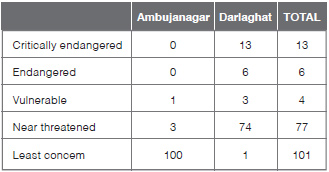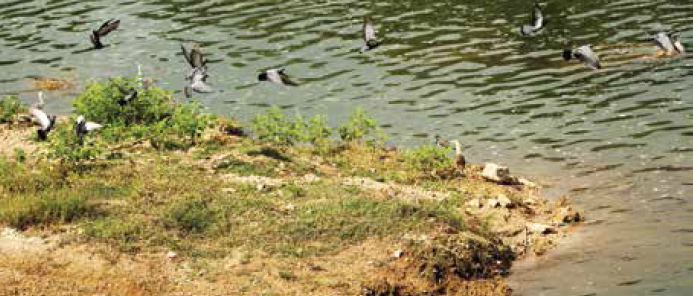|
Several measures are implemented to improve the
environmental performance and address health & safety
issues at Ambuja’s integrated cement plants and mining
sites. Our water positive programme around our mining
sites is designed to minimise the water requirement from
natural resources in order to preserve biodiversity and the
ecosystem. Trees are planted at the mine sites to improve
biodiversity. After years of hard work, a green belt has
been created in and around the plant and mine areas; it
has transformed the dry and barren land into a verdant
landscape. The green belt fulfils Ambuja’s commitment to
have a high percentage of green cover and also helps
reduce dust pollution and carbon sequestration. It also
builds a rapport with the local villagers, providing both
social and ecological value.
Ambuja’s community welfare initiatives help in improving
the livelihoods of the local people. Check dams aid in conserving water during the rainy season, which helps in
recharging the ground water table. The increased availability
of water in the water scarce regions of Gujarat and
Rajasthan enables the local people to grow crops for a
longer duration in the year, thus inproving their livelihood.
This also helps the biodiversity and ecosystem of the area.
The Company uses local agricultural fodder as biomass for
power generation. This helps in minimising the emission of
green house gases and provides additional income to the
farmers through the sale of biomass to Ambuja. |
All Ambuja’s operating sites have been assessed for their
environmental impact; systems have been put in place to
prevent the occurrence of adverse impact. The Company
continuously strives to operate in an environmentally
responsible manner. At Darlaghat, and Ambujanagar the
area within 10 km of our mining or plant operations has
been designated as a protected area. The Company has initiated a wildlife conservation plan and biodiversity action
plan at these locations. Additionally, our Rabriyawas plant
has initiated a natural capital profile assessment with the
guidance of Indian Business Biodiversity Initiative (IBBI).
The Company has prepared a conservation plan for
schedule-1 species which has been authenticated and
approved by the Principal Chief Conservator of Forests
(Wildlife)-cum-Chief Wildlife Warden, Government of
Himachal Pradesh. This plan is also due for Ambujanagar.
The total number of IUCN Red List species and National
Conservation List species with habitats in areas affected by the operations of the organisation, by level of extinction
risk, are:
 |


























